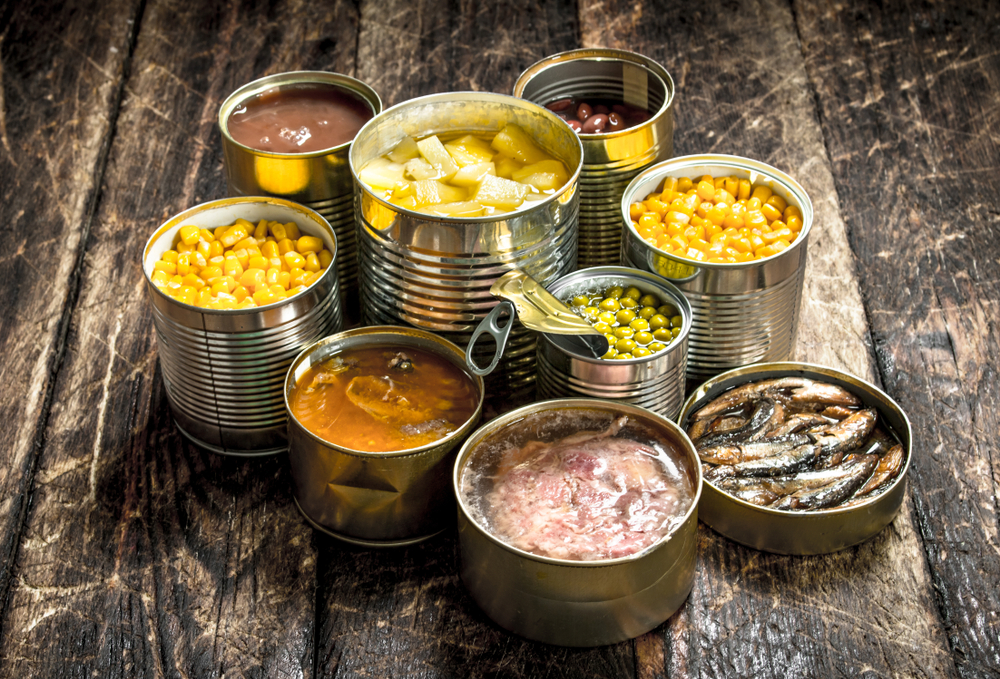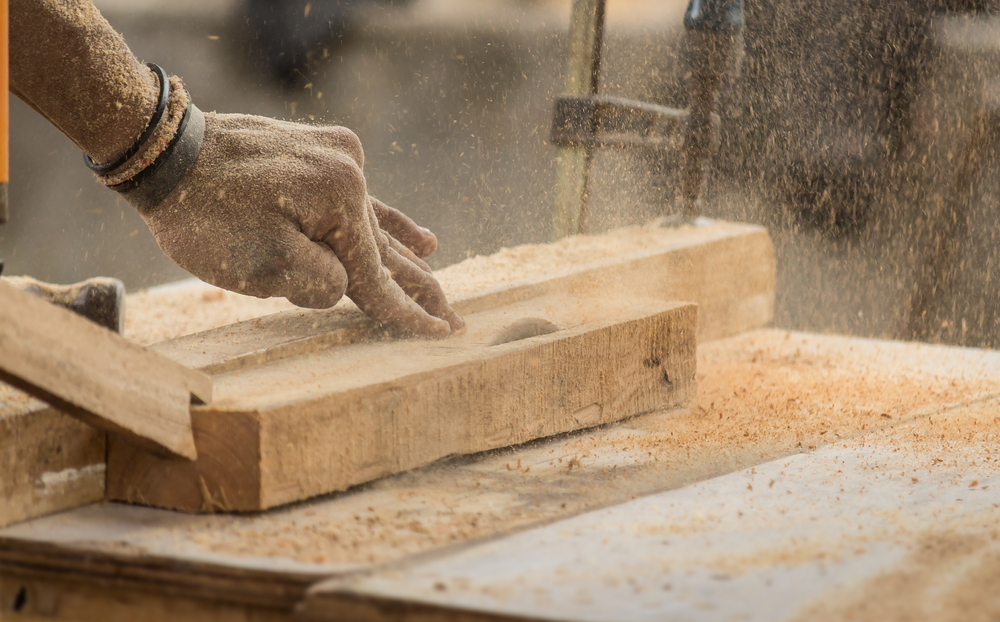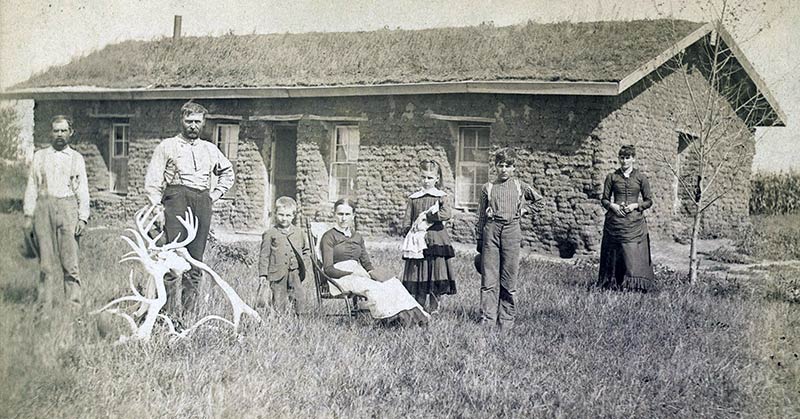As they say, times-are-a-changin’, and we hope for the better. However, there are some activities that were once considered basic survival skills that are lost by many today. Since the growth and reliance on technology and utility services, people’s attitudes have changed as well as common abilities. Older generations didn’t have such systems in place and therefore seemed to be more self-reliant. Here are 12 skills they had considered basic that are forgotten today. Many of these should be brought back!
1. Gardening for food

During World War II, many people planted “Victory Gardens” in their homes to alleviate the effects of food shortages. This trend of home vegetable gardens lasted for years after the war but eventually died. Nowadays when people hear “garden,” they think of flowers. [1]
If anyone is interested in starting their own vegetable patch, growing herbs is an awesome start. It may take some trial and error to develop a green thumb, but the fresh produce is always worth it.
Read More: 10 Bizarre Home Remedies Our Grandparents Used That Actually Work!
2. Preserving food

Canning food, smoking meat, and making homemade sausages were a regular activity many years ago to save food for the winter. This has become unnecessary since vegetables and meats are available all year round in America, which made these activities pretty much dead and the equipment needed nonexistent. This still makes for a fun experience, especially for those who enjoy making food from scratch.
3. Basic carpentry

Basic home repairs and maintenance are must for everyone, whether it’s something as simple as changing a lightbulb or more complicated like tinkering with a leaky sink. Not only does this save the time and money of having a repairman come, but there’s also a certain kind of pride and satisfaction that comes with independent home maintenance.
4. Basic mechanical repair

Instead of being the car stuck at the side of the road with no clue of what to do, be the car that pulls over to help. Mechanical savviness is useful, not to mention impressive, but it’s a skill that has become less used because of the ease of calling a mechanic or a tow truck. Having mechanical skills doesn’t stop at care, it can also help with other equipment like lawnmowers, power tools, and washing machines.
5. Herbal medicine

Back when pharmaceutical medicine wasn’t as accessible, “old wives’ tales” were quintessential for treating family ailments. Some of these still exist today and have been proven to be healing like chicken soup for the flu, ginger for the upset stomach, and honey tea for a sore throat. Even when medicines are available, some soup or tea can only benefit a sick person. [2] [3] [4]
Read More: Why your grandparents had fewer food allergies, but you don’t
6. Horseback riding

Riding horses is no longer a survival skill with the rise of cars and public transportation, but those who ride for sport or fun know that giddying up is no easy task. Like a car, it takes training and practice, as does hitching a pair of horses to a carriage and driving them. This skill has been forgotten by most people, yet it would be a cool one to relearn.
7. Preparing meals from scratch

Many people may protest this. After all, many home-cooked their meals, but how much of their ingredients are already prepared? Frozen veggies, breadcrumbs, dried pasta, and canned beans are common ingredients in many recipes. In fact, it may be difficult to find a cookbook that involves grinding flour. This is not even mentioning the vast array of takeout food and frozen meals available in local supermarkets. As long as health is not compromised, perhaps we can make an exception for this skill for the sake of convenience and saving time.
8. Not wasting food

Since there is easy access to an abundance of food, people tend to take it for granted. In the past, food was scarce and took a lot of effort to find and cook, and our ancestors would be horrified by how much we waste. The average American family trashes 40% of the food they buy, resulting in $165 billion in wasted food every year in the U.S. Even people nowadays are stunned at that percentage. Fortunately, with freezers and other methods of preservation, extra food can be stored and eaten at a later date. [5]
9. Navigating (without a GPS)

Many people nowadays can remember a time before GPS when maps were physical and didn’t “show your location.” Still, these same individuals probably can’t recall how to navigate with an old-fashioned map or wouldn’t think to roll down their car window to ask a passerby for directions. Often, we look up the same address multiple times, relying on our GPS instead of memorizing the address. It comes to show what a different time we live in, and still, having a map and knowing how to use it is handy since it will never run out of battery.
Read More: 10 Ways Photos Help With Dementia Care
10. Memorizing phone numbers

This one is almost comical. Many parents teach their children to memorize their numbers in the case of emergencies, but once they get cell phones, this skill slacks off. Since we rely on our digital contact list, the numbers we tend to remember are the ones we learned from childhood. However, knowing the numbers of our loved ones is a useful skill for times of emergencies or to communicate if the cell phone dies. We may not need to memorize those important numbers, but the least we can do is write them down. Rolodex anyone?
11. Bartering

For the most part, bartering has become a nonexistent skill in the West where prices are fixed. Perhaps some people are gifted in getting discounts with coupons or for damaged goods, but our prowess ends there. During the Great Depression, many people survived on their bartering skills, as well as farmers throughout history. Many Westerners today who visit markets that still use bartering are often uncomfortable with the process and end up getting ripped off.
12. Self-entertaining

While earlier generations had TV, or a radio, or a newspaper, or books, there was less of a constant niggling of the boredom we have today where we tend to whip out our phones whenever things become too dull or leave Netflix or YouTube playing in the background since we need some form of entertainment happening around us. This is less of a survival skill and more of a mental health one. Sitting in silence has become uncomfortable, as well as having nothing but our own thoughts to entertain us.
Constant entertainment takes a toll on our well-being, not to mention our attention spans. Being bored is good for mental health since it gives our minds a break from screens and other stressors. Sometimes we use background noise as a distraction from facing emotions or difficult tasks, things that take a toll on our well-being as we push them off.
The next time you’re sitting in the doctor’s office or waiting for your lunch date to arrive, don’t take out your phone. Take a few moments to let your mind wander and see how your mood, brain, and work performance can improve. [6] If you choose to implement any of these old-fashioned skills into your life, I suggest you choose this one.
Read More: Study Shows the More You Hang out with Your Mom, the Longer She’ll Live
Sources
- Mary Schons. Fenway Victory Gardens National Geographic. https://www.nationalgeographic.org/article/fenway-victory-gardens/ November 30, 2011
- Tara Parker. The Science of Chicken Soup. NY Times. https://well.blogs.nytimes.com/2007/10/12/the-science-of-chicken-soup/ October 12, 2007
- Kirsten Schofield. 7 Natural Remedies for Your Upset Stomach. Healthline. https://www.healthline.com/health/digestive-health/natural-upset-stomach-remedies April 14, 2017
- Yella Hewings-Martin, Ph.D. Lemon, honey, and alcohol: Which is best for sore throat? Medical News Today. https://www.medicalnewstoday.com/articles/320261.php#1 December 5, 2017
- Quentin Fottrell. Food for thought this Thanksgiving: 40% of groceries are thrown out every year. Market Watch. https://www.marketwatch.com/story/this-is-why-americans-throw-out-165-billion-in-food-every-year-2016-07-22 November 21, 2018
- Jamie Ducharme. Being Bored Can Be Good for You—If You Do It Right. Here’s How. Times. https://time.com/5480002/benefits-of-boredom/ January 4, 2019

